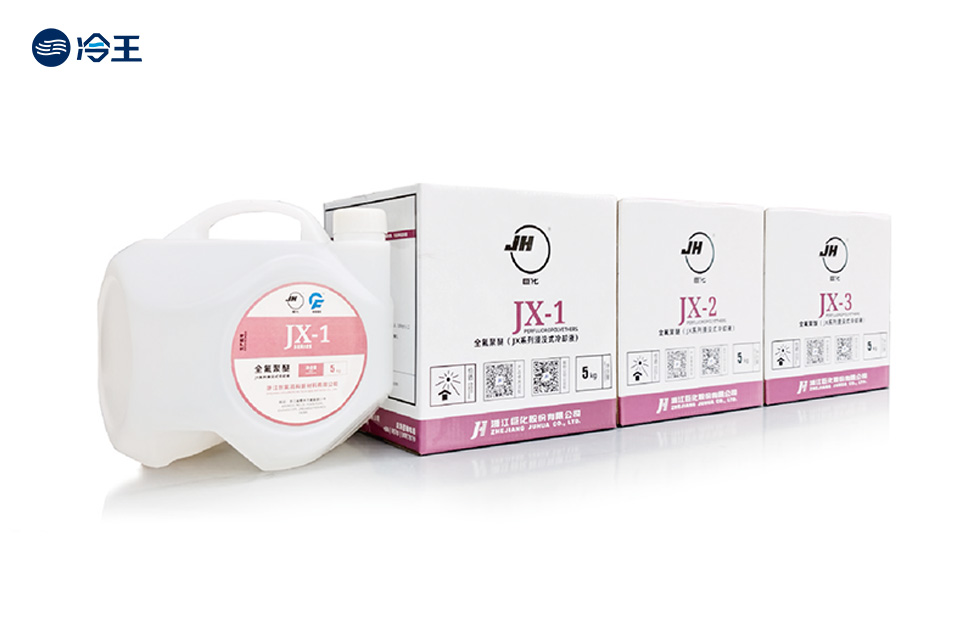
Today, with exponential growth in arithmetic demand, data centers are facing unprecedented thermal challenges. The power consumption of NVIDIA's B200 chip exceeds 1000W for a single card, the total power consumption of eight-card servers reaches 8000W, and the density of a single cabinet moves toward 50kW. In this thermal technology revolution, immersion coolant technology with revolutionary advantages, reconstructing the data center energy efficiency boundary.
#01
Technological breakthroughs: the leap from laboratory to commercialization
Immersion coolant technology has gone through double breakthroughs in material science and thermodynamic theory. Through technological innovation, Juhua has realized the existing production capacity of 4,000 tons/year of electronic grade fluorinated fluid and plans to increase the production capacity, marking a key step in China's high-end coolant field. Juhua Fluorine Liquid not only has the performance comparable to international brands, but also becomes the first choice of domestic data center customers through localized service and cost advantage.
#02
Core Advantage: Double Breakthrough in Energy Efficiency and Density
AliCloud Renhe Data Center adopts immersion liquid cooling technology, which reduces the PUE value to 1.09, a qualitative leap compared to the traditional air-cooled 1.5-1.8. Microsoft tests show that the immersion cooling system keeps IT equipment running at full power through the latent heat of phase change of the cooling liquid, and the PUE value can be close to the theoretical limit of 1.0.
Immersion coolant technology can support single cabinet power density increase to more than 100kW, which perfectly meets the needs of high-density computing scenarios such as AI and HPC. AliCloud Panjou series liquid-cooled all-in-one machine, ImmersionDC1000, realizes a 70% increase in cooling efficiency through excellent condensation reflow design, supporting a single cabinet density of 50kW.
By isolating humidity, dust and other environmental factors, the immersion coolant technology significantly reduces the equipment failure rate. AliCloud data center tests show that the liquid cooling system reduces the hardware failure rate by 60% and extends the service life of the equipment. In Microsoft's tests, the elimination of the fan design increased the server's mean time between failure (MTBF) to 200,000 hours.
From the development of coolant materials to the deployment of data centers, close cooperation between upstream and downstream enterprises is required. Aliyun, Microsoft and other companies have opened up some of the technical interfaces to promote the standardization process, and modular design is expected to reduce costs by 35%.
Submerged coolant technology is driving data centers to a more efficient, green and sustainable future with the momentum of a liquid engine. From breakthroughs in material science to the integration of intelligent thermal management, and from the practice of global benchmark cases to the outlook for future trends, this technology is not only reshaping the boundaries of energy efficiency in data centers, but also becoming an important force in promoting the green development of the digital economy.




